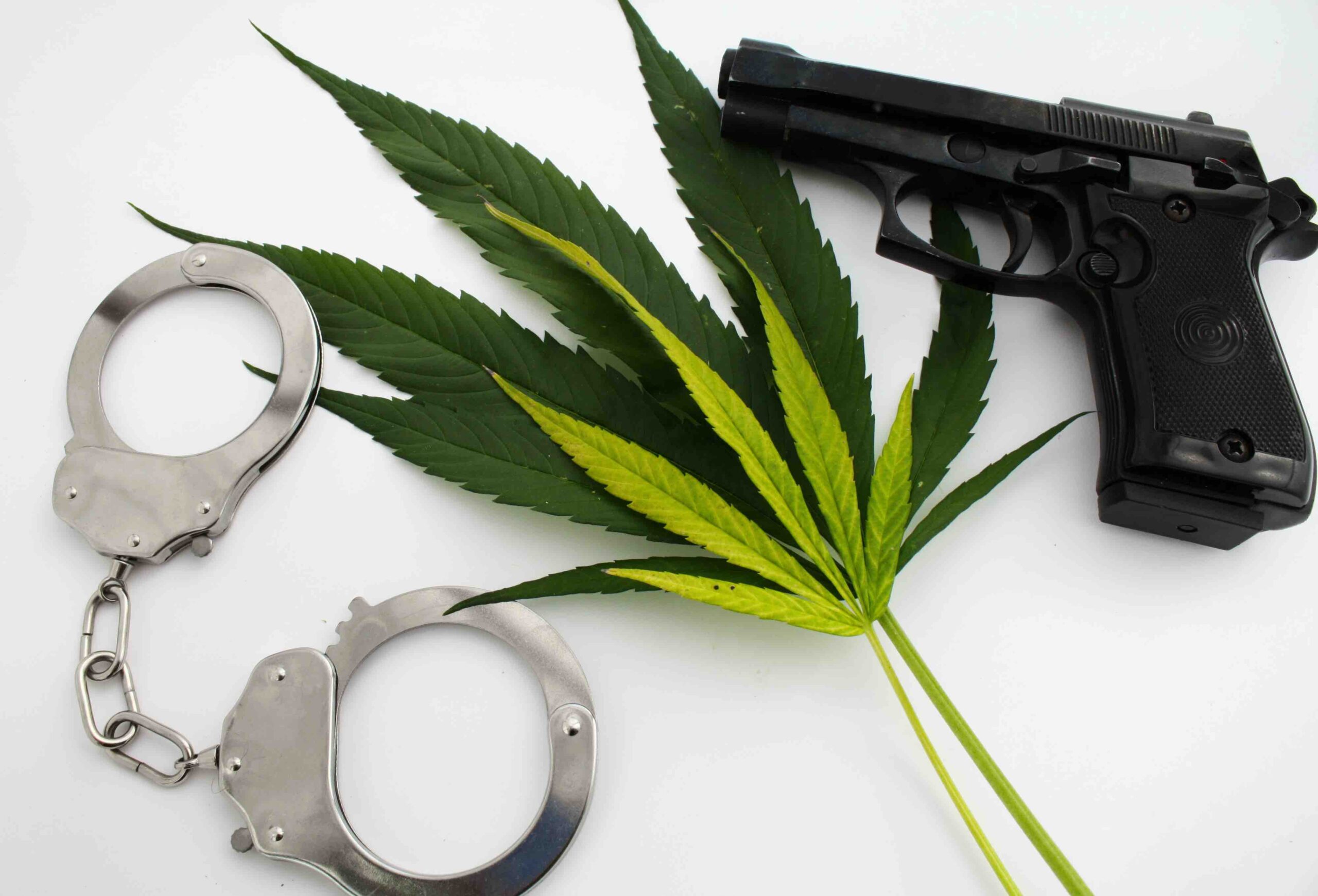
Judge lifts gun ban for marijuana users
Although federal law specifically prohibits all Americans who use or possess marijuana from buying or owning a firearm, an Oklahoma judge ruled the ban unconstitutional late last week.
On February 3, US District Judge Patrick Wyrick — an appointee for former President Trump — dismissed an indictment against a man named Jared Michael Harrison.
Last May, Lawton, Oklahoma, police stopped Harrison’s car after he allegedly failed to stop at a red light. They found a loaded revolver and marijuana inside. Police officers also observed Harrison wearing an ankle monitor; He was on probation for aggravated assault. Harrison went on to tell the officer that he works at a medical marijuana dispensary but does not have a medical card.
Judge Wyrick’s decision to dismiss Harrison’s case follows other gun-related cases, including an influential Supreme Court decision that reaffirmed the scope of the Second Amendment.
The judge says the ban violates the Second Amendment
In his written decision, Wyrick agreed with Harrison’s attorneys that the law in question was “vaguely unconstitutional, violates the Due Process Clause, and unconstitutionally violates his fundamental right to own a firearm, which violates the Second Amendment.”
The second amendment reads in part: “The right of the people to possess and bear arms shall not be violated.”
“It must be reiterated that any United States would have to prove in court to justify depriving Harrison of his right to possess a firearm, namely that he is a marijuana user. But the mere use of marijuana bears none of the characteristics that support the nation’s history and tradition in regulating firearms,” Justice Wyrick wrote.
Why is there a gun ban at all?
The debate in the Harrison case stems from the Gun Control Act of 1968, which prohibits any “illegal user” of a controlled substance from buying or possessing a firearm or ammunition. Because marijuana remains a Schedule 1 controlled substance at the federal level, no Americans — even those in legal states — are immune to this policy.
Anyone who buys a firearm must fill out a Bureau of Alcohol, Tobacco, Firearms and Explosives registration form that asks if they are an “illegal” user of marijuana. If they tick “yes,” the ATF denies their firearms application. Additionally, applicants can face federal fees if they lie on the form.
Bipartisan attempts to change policy have failed
Other lawmakers and state officials have challenged the gun control law, but none have succeeded.
In April 2022, Florida Agriculture Commissioner Nikki Fried (D) sued the Biden administration to allow medical patients access to firearms. “Medical marijuana is legal. Guns are legal. It’s about people’s rights and their freedom to have both responsibly,” Fried explained at the time.
Related
The Roll-up #239: Nikki Fried Tells Us Why She’s Suing Joe Biden Over Cannabis And Guns
US District Judge Allen Winsor dismissed her lawsuit last November; Fried has since appealed the decision.
Additionally, the late Representative Don Young (R-AK) introduced the GRAM Act in 2021. He would have ended gun bans in legal marijuana states.
Last year, cannabis reform advocates in the US Senate tried, but failed, to attach a trio of cannabis laws, including GRAM, to the National Defense Authorization Act.
Rep. Mooney is pushing to end ban on medical patients
Last month, US Representative Alex Mooney (R-WV) reintroduced his Second Amendment Protection Act to allow medical marijuana patients to purchase and possess firearms. The bill failed to gain momentum in past sessions but could fare differently in a GOP-led House.
“The beauty of [Mooney’s bill is]it’s not a marijuana law, it’s a gun law if you’re a Republican,” conservative cannabis lobbyist Don Murphy recently told Leafly.
The fate of Mooney’s bill remains to be seen. Meanwhile, the US Department of Justice is likely to appeal Wyrick’s decision to dismiss Harrison’s Oklahoma case, Reuters reports.

Post a comment: